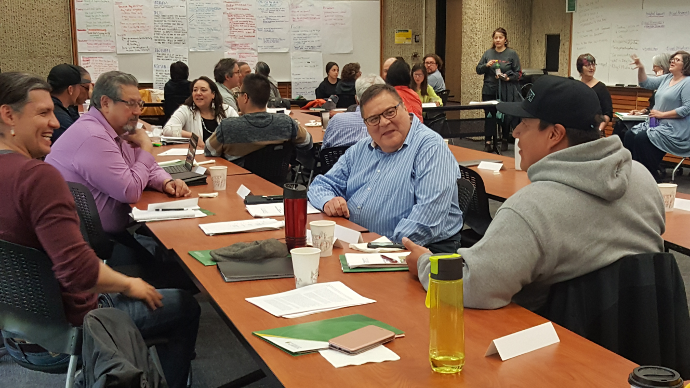
A research centre at the University of Alberta is helping Indigenous communities and front-line professionals apply a new law that affirms Indigenous communities have inherent jurisdiction over the welfare of their children.
The Wahkohtowin Law and Governance Lodge has produced a library of guides that unpack "An Act respecting First Nations, Inuit and Métis children, youth and families." Formerly known as Bill C-92, the Act came into force on January 1.
The Act recognizes the inherent jurisdiction of Indigenous communities and nations to write their own laws regarding child and family services. It also sets national minimum standards that must be adhered to immediately, said law professor Hadley Friedland, co-lead of the Lodge.
But there are questions and concerns about the Act that may make it a challenge to implement, she said.
"In order for any Act to really fulfil its intended purposes, people on the ground need to understand the law, interpret it in light of its purpose and do the hard work of applying it in unique factual situations. These guides are designed to take some of the uncertainty and guess-work out of doing this," said Friedland.
Six guides are currently available for social workers, health care professionals, service providers, lawyers, community members, Indigenous governing bodies and stakeholders. The guides provide practical support, covering topics such as compliance for social workers, prenatal provisions for healthcare professionals and implementation for legal professionals.
"The national standards came into force January 1st, and we are still hearing that many legal and social work professionals are not aware the law has changed," said Friedland. "We want to produce high-quality resources to bridge this gap so the law is followed."
In addition to writing and publishing guides on the new Act, the Lodge has created workshops, a webinar and teach-ins on how to build on the benefits of this new Act.
Jointly hosted by the Lodge and the Canadian Association of Social Workers, the webinar reached over 500 social workers, service providers and community members.
"The webinar was a great tool to reach such a broad audience that otherwise would not have access to these resources," said Koren Lightning-Earle, the Lodge's legal counsel and vice-president of Kasohkowew Child Wellness Society. Lightning-Earle, '07 LLB, has been instrumental in recent initiatives after joining the Lodge in December 2019.
"With such a wide reach we can help increase the awareness around Bill C-92," she said.
The Lodge's long-term vision is to expand the resource library to assist all those impacted by or responsible for the implementation of the Act, including Indigenous children and youth, Indigenous families, and foster parents. Resources will also highlight wise practices and success stories regarding implementation as they emerge.
The Lodge is a joint initiative of the University of Alberta's Faculty of Law and Faculty of Native Studies. One of its mandates is to produce useful, accessible and practical governance resources and public legal education.